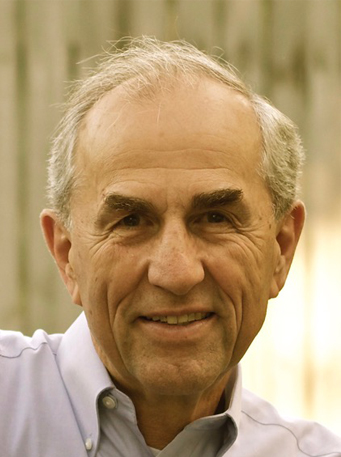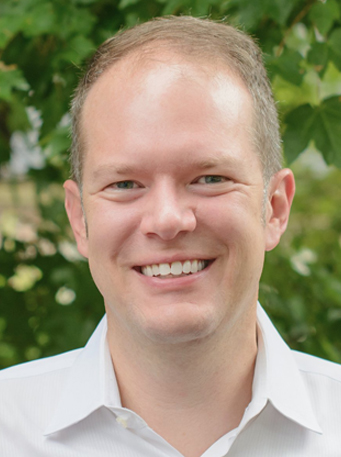Lendall H. Smith and Matthew R. Miner
New Horizons: March 2021
Also in this issue
The Why and How of a Sabbatical for Your Pastor
by Kenneth Vander Molen
by Jonathan Landry Cruse

Most of us have opinions about how an Orthodox Presbyterian pastor should care for the members of his congregation, but we often do not think about the reverse: How should Orthodox Presbyterian church members care for their pastor? What does a pastor need to encourage him in his ministry?
Every aspect of a pastor’s life involves service to the church. Pastors take phone calls and pay visits at all hours. Evenings are often taken up with meetings and church events. Even as it is offered with a joyful heart in service to their King, these various acts of ministry affect the time that pastors can spend at home with their families. For a pastor’s children, their views of Christ and his church are often based in part on how the local church treats its minister—their daddy!
As it says in 1 Corinthians 12, the body of Christ has many members, including eyes, ears, and hands. Each part of the body is essential, and each part should have “the same care for one another” (v. 25), since we all serve “the same Lord” (v. 5). So in this arrangement of mutual service and love in the body of Christ, what can church members and officers do to care for and encourage their pastor?

Above all, pray fervently for your pastor! His preaching and pastoral ministry is a challenging calling; humanly speaking, it is impossible. The Apostle Paul knew the importance of prayer. In Ephesians 6:19, he asked for prayer so that he would have both the words and the boldness to proclaim the mystery of the gospel. In Colossians 4:3–4, he writes, “Pray also for us, that God may open to us a door for the word, to declare the mystery of Christ, on account of which I am in prison—that I may make it clear, which is how I ought to speak.” Christians must uphold their pastor in prayer in order that the Lord might help him fulfill his calling. Nothing was more reassuring to me (Lendall) in my years of ministry than to be told by various members of the congregation that they were praying for me each day.
Parishioners respond thoughtfully to their pastor’s messages when, instead of offering only a generic handshake at the end of the service, they express appreciation for ideas that helped them in their understanding of the Bible and the gospel. They can share their gratitude as his ministry challenges them in their faith and obedience to the Lord. They can let the pastor know how a message, or a portion of it, was particularly comforting in a time of discouragement or depression. Sometimes a member might interact with the pastor about an idea in the sermon. Hearing such reflections stimulates a pastor. It gives him helpful feedback that his flock is profiting from his messages. I (Lendall) still remember one occasion where I was very discouraged about how the sermon had gone that week (my wife would affirm that this happened more than once!). It was a blue Monday indeed. On Wednesday, I received a lovely note from a member of the congregation who told me how and why the service had been a great blessing to her the previous Sunday. It lifted my spirits to be reminded of how the Lord uses his Word, the singing of hymns, and prayers to bless his people—even when I felt I had fallen short in my ministry. Her note was a gift from the Lord.
The OP minister is a man, made in God’s image, broken by sin, and redeemed in Christ. He has a special calling from the Lord, but he is not “more spiritual” than others, nor is he a religious professional that the congregation hired for outsourced work. Members encourage their pastor as they deepen their relationships with him as a person of like nature to themselves. As congregants grasp this truth and get to know their pastor better, they will be able to pray more thoughtfully for him and his family. What experiences shaped his life? What are his interests and hobbies? If you discover similar interests, you may be able to pursue them together—running, reading, golfing, playing sports, or sharing God’s good gifts of food and drink. Being a pastor can feel lonely.
I (Lendall) look back with thankfulness on one couple in a congregation that I served who invited my wife and me out to dinner each year on the anniversary of my call to serve that congregation. This annual meal was a big encouragement and thoughtful remembrance that they were glad that I accepted the call to be their pastor.
Dave Holmlund, regional home missionary of the Presbytery of Philadelphia, appreciated one glimpse of affection from an unexpected source in an OP church plant he served: “There was a family with an elementary-aged boy, Cameron, who had a nickname for me behind my back: ‘Big Dave.’ When I finally learned this after some five years, I thought it was hilarious. Everything at church was so formal—I was addressed as ‘Pastor Holmlund,’ etc. After I found out, it was my inside joke with them, especially with Cameron. It was very endearing.”
Members can encourage their pastor by including his family in their lives. Invite the whole family into your home for dinner, or go on a picnic together in a park in the summer. If you have children the same age, have the pastor’s children over for sleepovers—maybe so that the pastor and his wife can get away for a night or two. If you share a common interest in music, invite the family to go to a concert with you or just have them and others over to participate in an evening of singing or playing instruments together. Including the pastor and his family in activities helps them to feel like a vital part of the congregation, especially if they moved from a different part of the country, away from their family and friends.
Casey Bessette, pastor of Pilgrim OPC in Raleigh, North Carolina, describes the welcome he and his family have received since he began last summer: “Women are intentionally laying the foundation for long-term relationships with my wife. The children of the church are making an effort to befriend our kids. My family is invited for dinner in members’ homes. When my family was ill, delicious meals were provided. My wife and I are asked regularly if we have any needs.”
Members serving in various roles in the church can also provide a significant encouragement to the pastors, including volunteering as Sunday school teachers, volunteering as nursery workers, providing transportation to worship for students or the elderly, caring for the church property, welcoming visitors, serving the youth, listening to children recite memory verses or catechism questions, or visiting the sick. The list of ways to serve is as long and as varied as the needs of God’s people. The public ministry of Word and sacrament, the minister’s unique calling, are at the center of the church’s work. However, the loving service of all members makes the wheels go ’round (as 1 Corinthians 12 teaches). When the body of Christ is working together in service and ministry, it can be a great encouragement to everyone, including the minister.
Elders have a special role in caring for and encouraging their pastor. Matthew Holst, pastor of Shiloh Presbyterian in Raleigh, North Carolina, says: “My elders are a great encouragement to me. Even small things are important: ensuring my telephone and computer are up to date enables me to work without the hindrance of out-of-date technology. IT equipment for the pastors is a budget line item for the elders of Shiloh.”
Pulpit supply can also be a great help to pastors, Holst observes: “Recently I was asked to preach at another OP church. The elders of that church had brought in two weeks of pulpit supply so that their pastor could take time away from the pulpit to better help his wife who was due to give birth. Those elders had the care of their pastor’s family at the forefront of their minds and should be commended.”
Of course, one additional way that a church cares for its pastor is in providing financial support that he “may be free from worldly care and employment” (OPC Form of Government 22.9; see also 23.9, 11, 12). That is the teaching of the Apostle Paul: “the Lord commanded that those who proclaim the gospel should get their living by the gospel” (1 Cor. 9:14). In spite of this clear biblical directive, at times pastors find themselves in calls with financial means that are barely adequate, or even inadequate, to meet the needs of their family. In other cases, calls are not sufficiently adjusted annually to keep up with increased living costs and a growing family. While the factors involved in assessing the adequacy of pastoral compensation can grow quite complex, including widely varying costs based on the region of the country, one of the ways a church can care for the pastor is by reviewing his pastoral compensation annually.
To that end, the Committee on Ministerial Care has posted to its website, opccmc.org, a pastoral compensation tool that can provide guidance to churches, sessions, and search committees regarding how to account for years of experience, changing family size, appropriate contributions for retirement, and more. There is no one-size-fits-all approach to pastoral compensation, but the online tool can be a help, and perhaps a conversation-starter, to ensure a pastor’s material needs are being met sufficiently.
The suggestions above are only a sample of the myriad ways to care for, encourage, and support your pastor in his ministry. Such actions should never be aimed at gaining influence with the pastor. Instead, members are called to respond to gospel ministry by serving our Lord with eagerness and love, motivated by gratitude for his grace and mercy. Care for the pastor and loving service in the church will produce a spirit of joy and thankfulness in the congregation and in the heart of the pastor, who will say with Paul, “I thank my God in all my remembrance of you, always in every prayer of mine for you all making my prayer with joy, because of your partnership in the gospel from the first day until now. And I am sure of this, that he who began a good work in you will bring it to completion at the day of Jesus Christ” (Phil. 1:3–6). Amen!
Lendall Smith is president of the Committee on Ministerial Care. Matthew Miner is a ruling elder at Pilgrim OPC in Raleigh, North Carolina, and a member of the Committee on Ministerial Care. New Horizons, March 2021.
New Horizons: March 2021
Also in this issue
The Why and How of a Sabbatical for Your Pastor
by Kenneth Vander Molen
by Jonathan Landry Cruse
© 2025 The Orthodox Presbyterian Church